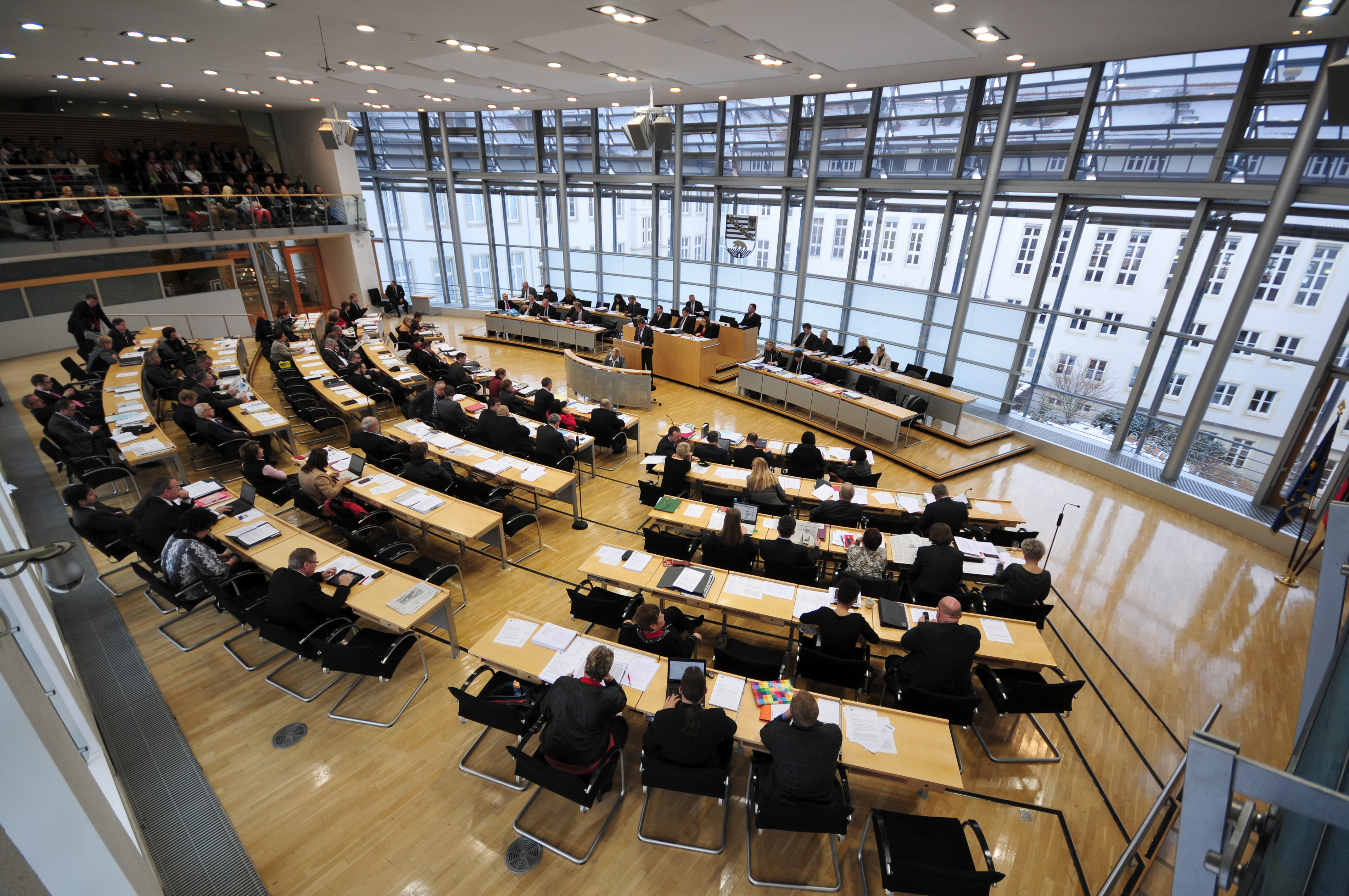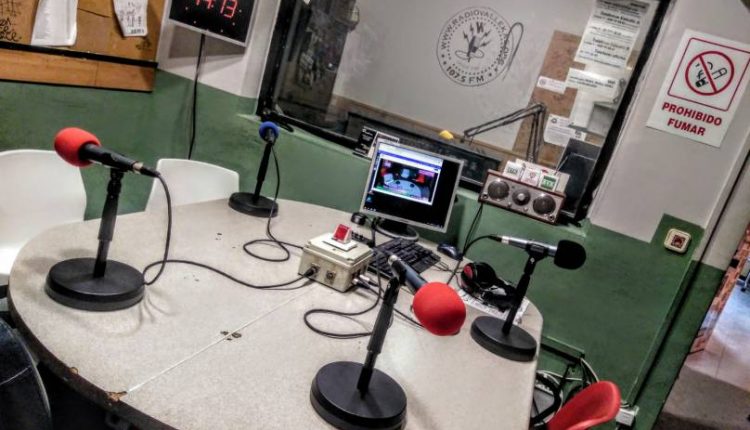Category: News

In recent years, the attacks from the right on community radios and free radios have increased but changed their modus operandi. While a few years ago leading figures of right-wing parties took legal action against reporting by community radios (e.g. against Radio Dreyeckland, Freiburg or Radio Frei, Erfurt), the strategy has now shifted by the right to the use of the parliamentary structures for these attacks. With the strengthening of the right-wing AfD (“Alternative for Germany”) party and its entry into parliaments, community radios have become the focus political activities of this party’s ‘political activities’ because of their reporting and their core anti-fascist ethos.
Free Radios in Berlin and Brandenburg were named in parliamentary questions in the Brandenburg state parliament. While in Saxony-Anhalt Radio Corax was the subject of parliamentary questions from the AfD in parliament. Then the AfD sent a complaint to the media authority of Saxony-Anhalt against Radio Corax. Furthermore, a few weeks ago they introduced a motion to the state parliament that stipulated that all public funding should be withdrawn from Radio Corax. The application was discussed in a parliamentary debate and then rejected by all democratic parties in the state parliament.
Even if these attacks have not been successful yet, a strategy against community radios can be recognised. The motions and inquiries in the various parliaments are similar in wording and the focus is on free radios critical reporting of AfD actions and the alleged left-wing extremist constitution of the radio stations.
It is obvious that the attacks by the AfD against community radios is the public discrediting not only of the radios themselves but also of anti-fascist approaches. And at this point the AfD is looking to create alliances with those in the conservative parties who have long been promoting anti-fascism as anti-democratic.
It is now essential that community radios do not allow themselves to be intimidated and confidently declare their democratic and anti-fascist ethos to the public and upheld them against political attacks. Especially when the attacks do not come from the camp of the right-wing parties, but from that of the liberal and conservative parties that see themselves as democrats. This is just the case in Flensburg (Schleswig-Holstein), where the young radio FRATZ is about to lose its local funding. There, the iberal FDP tries to withdraw the municipal funding for Radio FRATZ accusing them of one-sided reporting. The conservative party CDU supports the application, albeit not in the term of programming content, but because of the alleged discrimination against people who are legally not allowed access to Radio FRATZ as it is the case of members of the security forces such as the police. And, of course, both parties reject the accusation that they are using funding as a way to restrict freedom of the press.
In times of increasing nationalistic and authoritative forces, Community/Free/Associative radios -as independent, self-managed media but also as socio-political institutions- can be found alongside all those who are attacked for their commitment to a inclusive and democratic society. We should take this opportunity to stand up together and move from defense to the offensive against the forces of regression.
Category: News

Every year, 3rd of May is a date which celebrates the fundamental principles of press freedom, to evaluate press freedom around the world, to defend the media from attacks on their independence and to pay tribute to journalists who have lost their lives in the exercise of their profession.
AMARC Europe wants to use this 3rd May 2021 as a reminder to governments of the need to implement their commitment to diversity and media pluralism, by recognising the work of community media organisations around the world.
Precisely, this year’s World Press Freedom Day theme “Information as a Public Good” serves “as a call to affirm the importance of cherishing information as a public good, and exploring what can be done in the production, distribution and reception of content to strengthen journalism, and to advance transparency and empowerment while leaving no one behind”, according to UNESCO.
Community Media has strived and fostered the public ownership of media and the public direct participation in content production, and we will continue in the future despise the difficulties created by the lack of meaningful support to community media initiatives in most countries.
However, Community Media still faces lack of legal recognition in most countries around the world and, even in those countries where they have a legal status, they are continuously threatened by changes in media and broadcasting law and regulations, and lack of meaningful funding and support that would guarantee the sustainability of the Third Media Sector.
World Press Freedom Day was proclaimed by the UN General Assembly in 1993 following a Recommendation adopted at the twenty-sixth session of UNESCO’s General Conference in 1991. This in turn was a response to a call by African journalists who in 1991 produced the landmark Windhoek Declaration on media pluralism and independence.
Category: News

Citizen participation, social benefit, educational role … These are some of the key values of free or community media. We are talking mainly about a community media movement which has been active for decades in our country. In fact, the first documented experiences of this type of radio date back to 1976, now 45 years ago. The fight for legal recognition has continued throughout this time and 2021 should be, according to its protagonists, a key year for their requests.
Read this article, published by Cuartopoder.es here (in Spanish only).
Category: News

UNESCO and the Bonavero Institute of Human Rights of the University of Oxford will soon be launching a global Massive Open Online Course (MOOC) for judicial actors, to promote international and regional standards on freedom of expression and the safety of journalists.
This free, five-week online course will run from the weeks of the 10 May until the 07 June 2021, with the possibility of completing the course until the 30 June 2021.
The 5 modules will cover:
- The General Principles and Scope of Freedom of Expression;
- Limitations on Freedom of Expression;
- The Right of Access to Information;
- The Safety of Journalists;
- Challenges created by the Digital World.
The course will be led by experts in the field of human rights and freedom of expression, and will include high-level guest speakers such as UN Special Rapporteurs, judges from regional human rights courts, prosecutors, and human rights lawyers.
At the end of the course, a certificate of completion will be issued for participants who have completed the modules.
- Register today*, by filling out the information on this registration form: https://bit.ly/30UAZfy
*Please note that registrations will be confirmed by the organizers, and that you will receive an email prior to the start of the MOOC to create your account and access the course.
- More information on the MOOC can be found here.
Should you have any questions, please feel free to contact Namara Burki (n.burki@unesco.org) from UNESCO or Stefan Theil (stefan.theil@law.ox.ac.uk) from the Bonavero Institute of Human Rights.
Category: News

If you missed the Global Dialogues on Community Media in the Post-Pandemic World that took place during the summer of 2020, you can now revisit the discussions (see below). The meetings were curated & hosted by UNESCO Chair on Community Media Dr. Vinod Pavarala.
Global Dialogues, Community Media in the Post-Pandemic World 8. Community is the Answer:
Community Radio in Continental Europe – Part – 1
Panellists
- Nicolas Horber, Executive Officer, Radio Campus France
- Ragnar Nils-Olof Smittberg, President, NRO, Swedish National Organisation for Community Radio
- Ákos Cserhati, Founder, Civil Radio, Hungary
- Fabian Ekstedt, Board Member, Bundesverband Freier Radios (German Federation of Free Radios)
- Helga Schwarzwald, Managing Director, Verband Freier Radios Österreich–V-FRÖ (Austrian Association of Free Radios)
- Isabel Lema Blanco, ReMC (Spanish Network of Community Media)
Moderators
- Birgitte Jallov, President, Community Media Forum Europe (CMFE)
- Michael Nicolai, President, AMARC Europe
Global Dialogues, Community Media in the Post-Pandemic World 9
Strengthening Community Radio: Continental Europe Part – 2
Panellists
- Stephanie Scholz, Radio Corax, Halle, Germany
- Miranda Moen, RadiOrakel, Oslo, Norway
- Lisa McLean, ARA City Radio, Luxembourg
- Esa Ylikoski, Lähiradio, Helsinki, Finland
- Dragana Jovanovich, Friends of Srebrenica, Srebrenica, Bosnia and Herzegovina
Moderators
- Michael Nicolai, President, AMARC Europe
- Birgitte Jallov, President, Community Media Forum Europe (CMFE)
Global Dialogues on Community Media in the Post-Pandemic World 3
Beyond the Noise in UK & Ireland
Panellists
- Danny Lawrence, Chairman, Community Media Association (CMA), UK
- Janey Gordon, Vice-Chair, CMA & Founder, Radio LaB 97.1 fm (Bedfordshire)
- Steve Buckley, MD, Community Media Solutions & Former President, AMARC International
- Terry Lee, Coordinator, Radio Lab, University of Bedfordshire
- Soledad (Sally) Galiana, Radio Coordinator, Near FM (Dublin) & Former President, AMARC-Europe
- Rosemary Day, University of Limerick (Ireland) & Former Member, Broadcasting Authority of Ireland
Moderators
- Salvatore Scifo, Bournemouth University (UK) & former VP, Community Media Forum Europe (CMFE)
- Andrew Ó Baoill, National University of Ireland, Galway & Founding Station Manager, Flirt FM